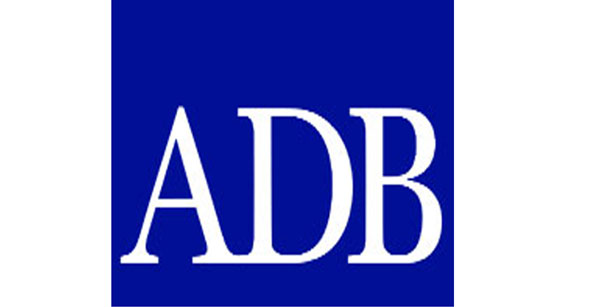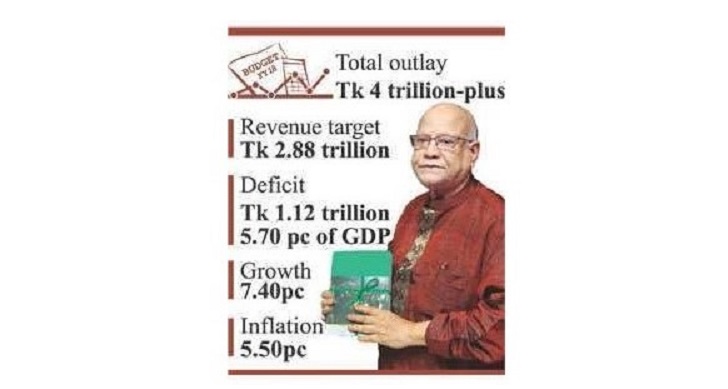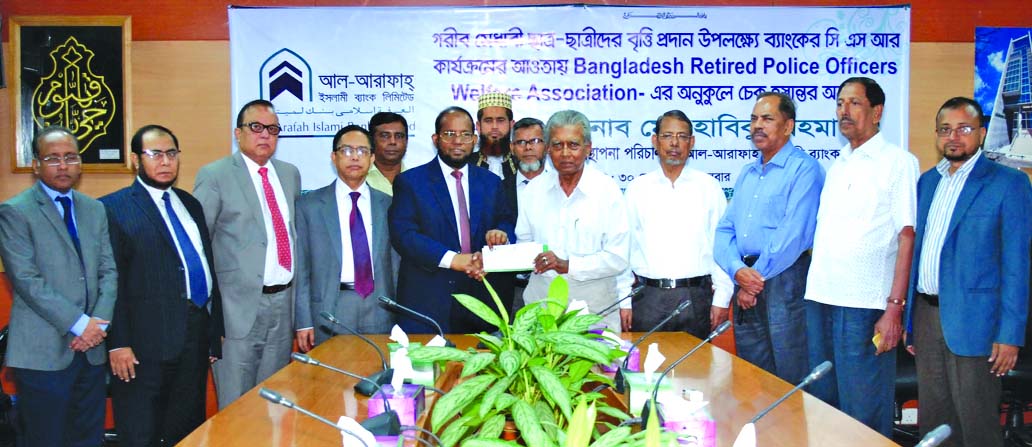Banking
Govt requests ADB to finance private sector enterprises Govt requests ADB to finance private sector enterprises

Bangladesh has requested ADB's private-sector lending arm to finance private enterprises to help the country score double-digit economic growth, in a divergence from its current funding practice.
Officials said Wednesday the government had made the plea to the Asian Development Bank (ADB) during the Bank's recent meeting in Japan, as the private sector is emerging as growth engine.
"Currently, ADB helps the government of Bangladesh only for public-sector development works. Now we have requested the Bank to come forward with their loans for the private sector, too, as that is the growth engine in the country," Economic Relations Division (ERD) Secretary Kazi Shofiqul Azam told the FE.
He said at a bilateral meeting on the sidelines of ADB's annual general meeting early May in Japan they had requested ADB President Mr Takehiko Nakao to finance Bangladesh's private sector through its private-sector lending window.
"We have also requested the Director General and the Executive Director of the South Asia Department of the Manila-based lender to consider Bangladesh's appeal for the private-sector lending," he added.
Government alone cannot play role to help the economy grow sans support of the private sector, Mr Azam said.
The ADB operates in Bangladesh with its loans and grants for public-sector development projects only. It does not lend to private-sector enterprises.
The Manila-based lender has a Private Sector Operations Department (PSOD) which finances the private enterprises in some of its member- countries.
However, it usually does not work in Bangladesh.
World Bank Group's two lending arms -- the International Finance Corporation and the Multilateral Investment Guaranty Agency (MIGA)- finance and support Bangladesh's private-sector enterprises for the growth in their business.
The IFC had already confirmed $635 million for 13 projects in Bangladesh until last financial year (FY), 2015-16. Its committed total portfolio in Bangladesh as of June 2016 amounted to about $1.0 billion in 47 projects.
The Corporation promotes sustainable growth and private-sector development in Bangladesh by investing in critical infrastructure, boosting financial inclusion, enhancing textiles competitiveness, and supporting reforms to make doing business easier for the private sector.
MIGA has already given guarantee to many private firms in Bangladesh to get foreign loans and supports.
According to the ADB, its PSOD provides key support for job creation, access to finance, and business opportunities across ADB-member countries.
In the last calendar year, 2016, the Asian Bank approved $2.5 billion in new financing to support private-sector operations in the region, while mobilising $5.8 billion in direct value-added co-financing. The combined $8.3 billion fund for 2016 was 15 per cent higher than in 2015, billed a new record.
ADB's private-sector operations are focused on assisting member-countries in achieving the Sustainable Development Goals as well as the targets laid out in the Paris Agreement on climate change.
A senior ERD official said: "Bangladesh needs to grow its economy at a double-digit rate. So, the ADB's prospective help to the private sector will facilitate the economic expansion here."
N Korean intelligence behind BB heist: Russian expert
Russian cyber security firm Group-IB said on Tuesday that a digital crime gang called Lazarus had hacked into and stolen money from the Central Bank of Bangladesh'
The crime group is actually controlled by North Korean intelligence, according to a report by www.news18.com.
Releasing a report on the matter, Group-IB said in a release here that $81 million stolen from the Bangladesh central bank's US Federal Reserve account in New York was the handiwork of Lazarus, which "is allegedly controlled by Bureau 121, a division of the Reconnaissance General Bureau, a North Korean intelligence agency."
"Deep analysis of the cybercriminals' command and control infrastructure as well as detailed threat intelligence information enabled Group-IB researchers to prove that the attacks were managed from Pyongyang (North Korean capital)."
In February last year, hackers inserted malware on a SWIFT (Society for Worldwide Interbank Telecommunication) terminal used by Bangladesh's central bank, obtained credentials needed for payment transfers from the New York Federal Reserve, and thereafter transferred $81 million to fake accounts in the Philippines and Sri Lanka.
By the time the fraud was discovered, the New York branch of the US central bank had approved five of the payments.
"In 2016 the group attempted to steal about $951 million from the Central Bank of Bangladesh SWIFT. However a mistake in a payment request cut the criminals' income to only $81 million," Group-IB said.
"Lazarus (also known as the Dark Seoul Gang) is known to hack governmental, military, and aerospace institutions worldwide," it added.
The Russian specialists said Lazarus is known for its 2014 hacking attack on Sony Pictures, when personal information of employees, internal e-mails and copies of then unreleased Sony films, among other information, were made public.
Group-IB said that unlike previous reports, this one has focused on research on infrastructure built by the hacker group to conduct their attacks.
"Despite the complex three-layer architecture and other advanced techniques, the researchers managed to identify that the group was operating from Potonggang District in North Korea, where, perhaps coincidentally, the National Defense Commission was located," the statement said.
"Taking into consideration strengthening economic sanctions against North Korea as well as the geopolitical tension in the region, we expect new wave of Lazarus attacks against global financial institutions," said Group-IB co-founder Dmitry Volkov.
AL government's big election budget today
Salaries, interest payments, subsidies to eat up more than half of non-development expenditure

The Awami League-led government presents today (Thursday) its final full-scale budget before the next polls with an up-raised outlay of over Tk 4.0 trillion -- foreshadowed by strains on some economic indicators.
Economists foresee some major macroeconomic concerns in the coming financial year, beginning July 01, with possible impact on aggregate demand that gauges economic health.
Finance Minister AMA Muhith is set to place the national budget over Tk 4.0 trillion, which is equivalent to less than 18 per cent of Bangladesh's GDP or gross domestic product.
It happens to be last full-pledged budget in the Awami League-led government's present tenure, as the next general election is due halfway through the financial year 2018-19.
Muhith hinted in a pre-budget discussion that the size of block allocation would rise significantly. Economists always oppose such allocation of money that goes for catering extra fund demands that lack transparency.
The economists, however, said budget outlay should be focused on investments as a means to stimulate demand in the economy as many a key economic indicator -- export, remittance and current-account balance -- fares not so well.
Mr Muhith is set to place his consecutive ninth budget in the National Parliament from 01:30 pm with power-point presentation on the crucial yearly spending plans for the nation.
Many believe achieving a Tk 2.88-trillion total revenue target could prove a daunting task for the government as it expects higher receipts from VAT sources under a new law which will be implemented from the next financial year after its passage in Parliament way back in 2012.
The total revenue will have to be increased by 29 per cent to make it around Tk 2.88 trillion.
A big chunk of the money will come from the National Board of Revenue (NBR), which is eyeing a 34 per cent enhanced collection of Tk 2.48 trillion. The remainder will come from non-tax revenues like profits and dividends of government-owned enterprises, and the third-biggest sources is non-NBR.
The deficit worth Tk 1.12 trillion, which is equivalent to around 5.7 per cent of GDP, will be financed from both internal and external sources.
Of the total budgetary outlay, Tk 1.53 trillion would be set aside for development expenditure and the rest for non-development spending.
Salaries and allowances of government staff, interest payments and subsidies account for more than half of the non-development expenditure.
However, revenues from export proceeds, if export growth falls further, will shrink in the next financial year and expected revenues from direct taxes may not be achieved if the investment and other private-sector activities do not pick up.
The finance minister will be looking for means to boost public spending for achieving higher economic growth at 7.4 per cent as the private sector still grows at much slower pace than expected.
The government expects the GDP in nominal terms at Tk 22.243 trillion at the end of the financial year to June 30, 2018.
It also wants to keep the rate of inflation pegged to 5.5 per cent on average for next financial year although the prices of major staples are rising in recent months.
The much-talked-about new VAT system, under a law adopted in 2012, is ready for enforcement from July 01 as all preparations have been completed to this end.
The indirect taxation has direct bearings on the life and livelihood of every consumer as it is they -- already bearing the pinch of high inflationary pressure on some goods -- who are to pay ultimately.
A possibility of lowering the rate of VAT from 15 per cent to 12 per cent, considering demand from the business community, is cloaked in confusion as the finance minister lately gave the cold shoulder.
Currently, varied rates of supplementary duty are imposed on 1362 products at import and supply levels. And if they are withdrawn under the VAT act, then it will give less protection to the local industries.
Under the new law, supplementary duty can be slapped on a maximum of 170 goods and three services.
Although there are no significant developments in execution of the mega-projects, the budget proper will continue to boost the infrastructural development in the run-up to the next polls.
Economists say public expenditure is required to boost private investment but the former must be qualitative.
In their pre-budget thoughts they also stressed the need for effective implementation of major infrastructure projects for firing up economic growth which has been set at 7.4 per cent for the next fiscal.
Dr Ahsan H Mansur, executive director at the Policy Research Institute of Bangladesh (PRI), told the FE that quality public investment is an imperative to crowd in private investment.
The economist, however, sees challenges on both sides -revenue mobilisation and expenditure.
He said the revenue being expected from VAT Act implementation will not be so high in first year.
"It will take time to get expected level of revenues from VAT sources," Dr Mansur said.
The government would also not undertake any other major reforms in the budget to boost its revenues.
Banking sector is a major source of revenue income. In the current budget, the corporate tax on the sector got reduced by 2.5 per cent. It might be withdrawn in the next budget.
Dr Zahid Hussain, lead economist at the Dhaka office of the World Bank, told the FE that the public investment may be a tool for boosting the aggregate demand in the economy.
"We also need to think about the Haor people to address their basic needs, and effective social safety net is a must there," he noted.
Dr Hussain feels the urgency of big reforms to accelerate the economic growth.
Md Habibur Rahman, Managing Director of Al-Arafah Islami Bank Limited, handed over a cheque of Tk. 5 lakh for giving scholarships to poor and meritorious students to M Shahidul Islam Chowdhury, former Inspector General of Police and President of Banglades

Md Habibur Rahman, Managing Director of Al-Arafah Islami Bank Limited, handed over a cheque of Tk. 5 lakh for giving scholarships to poor and meritorious students to M Shahidul Islam Chowdhury, former Inspector General of Police and President of Banglades
news:new nation/1-jun-2017Arastoo Khan, Chairman of Islami Bank Bangladesh Limited, presiding over a Board of Directors meeting at the bank head office in the city on Wednesday. Md Abdul Hamid Miah, Managing Director and directors of the bank among others were also present.
 Arastoo Khan, Chairman of Islami Bank Bangladesh Limited, presiding over a Board of Directors meeting at the bank head office in the city on Wednesday. Md Abdul Hamid Miah, Managing Director and directors of the bank among others were also present.
Arastoo Khan, Chairman of Islami Bank Bangladesh Limited, presiding over a Board of Directors meeting at the bank head office in the city on Wednesday. Md Abdul Hamid Miah, Managing Director and directors of the bank among others were also present.



